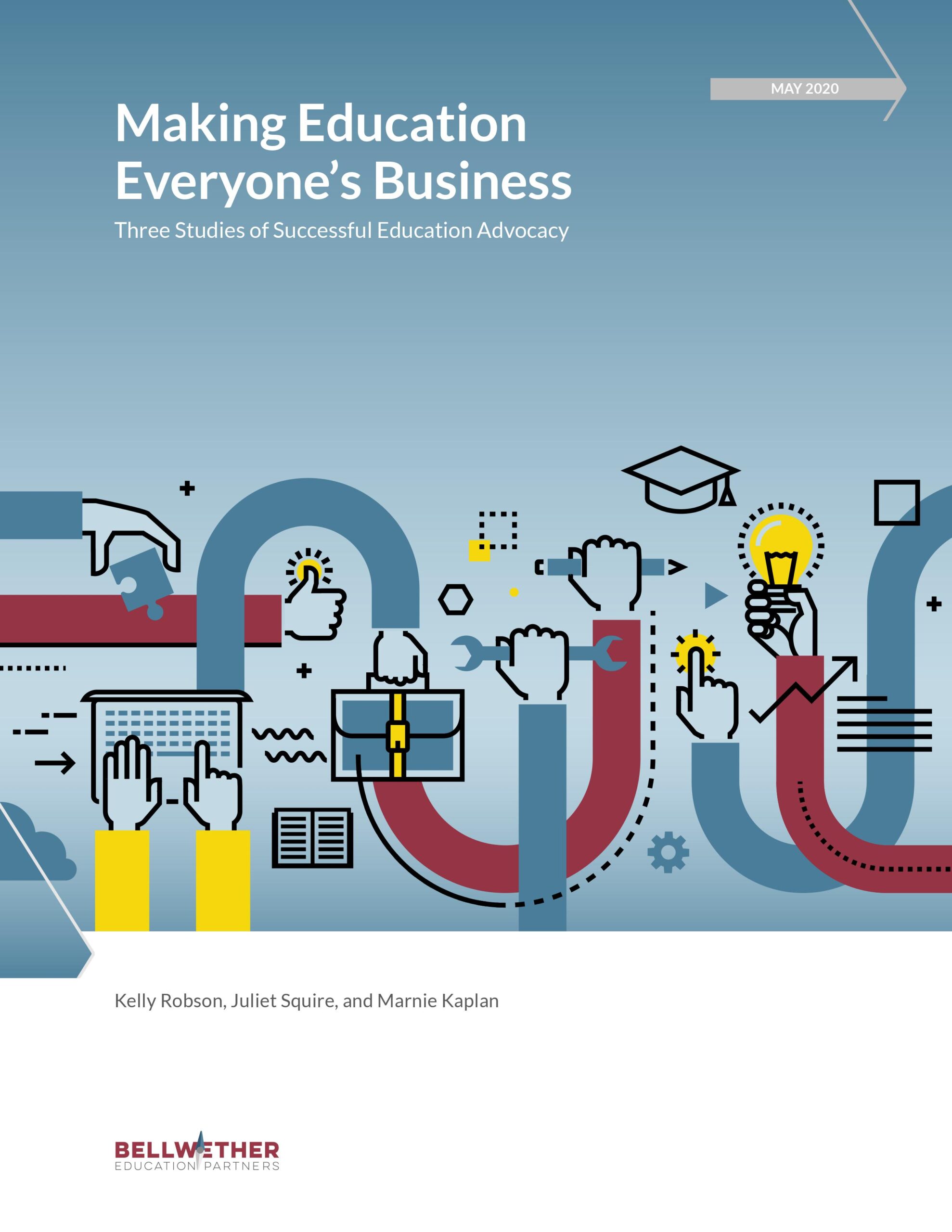Questions about when and how to reopen schools will have ripple effects for the business sector and broader economy. If schools cannot open at all, or open only part-time or for small groups of students on a rotating basis, adults cannot return to work. Without a workforce, businesses cannot reopen and the economy remains shuttered. As a result, the business community has an especially important role to play in current deliberations about whether and how to reopen schools.
Business advocacy organizations, such as chambers of commerce and business roundtables, are well-suited to engage in these deliberations. These organizations advocate on behalf of policies that ensure students gain the skills, knowledge, and experiences they need to be successful in the current and future economy. This can look like helping to pass legislation requiring computer science coursework or successfully advocating for legislation to improve access to industry-recognized credentials and work-based learning experiences. In light of the current pandemic, business advocacy organizations bring an important voice to the conversation about what schooling could and should look like in the near future.

What makes these organizations well-suited to engage in these conversations? While there’s limited research examining how the most successful organizations work, my colleagues and I recently completed a report that uncovered three key strengths that the most successful have in common.
First, business advocacy organizations have a deep understanding of the advocacy landscape in their state and understand how to bring diverse groups — such as Republicans and Democrats or business and labor — together for a common cause. In Washington State, for example, the Washington Roundtable coordinates the College Promise Coalition, which includes stakeholders from public and private two- and four-year colleges and universities, students, families, alumni, education advocates, education leaders, and business leaders. As part of its advocacy to improve enrollment and completion rates in the state’s postsecondary institutions, the coalition’s broad base demonstrated widespread support for the Workforce Education Investment Act, which ultimately passed. Coordinating community-wide efforts like these will be imperative as regions work to repair their business, economic, and education sectors in a post-COVID world.
In addition, successful business advocacy organizations have carved out a role for themselves as purveyors of high-quality research and information on their states’ education systems. They conduct research themselves or commission reports from other organizations and use this information to inform their agendas and advocacy efforts. Many of these reports are public, providing critical information to policymakers, education leaders, and other stakeholders. Metro Atlanta Chamber’s research on the gap between postsecondary degrees and certifications and the job openings in the state, for example, helped lay a foundation for its advocacy on behalf of computer science legislation.
This kind of timely, high-quality research will be even more critical in the coming months and years as students, families, and schools will be facing new and different hurdles. Timely, high-quality research is necessary to ensure that students do not fall through the cracks, that gaps in learning are quickly identified and addressed, and that school system leaders and policymakers have open lines of communication about needs and challenges. While it cannot fall solely to business advocacy organizations to do this research and data analysis — nonprofits, universities, and other advocacy organizations all have a role — many have done it well for years and must continue to do so for the foreseeable future.
Finally, successful business advocacy organizations are nimble. While they have specific, research-based agendas that guide their activities, they can pivot quickly when political conditions shift. In some cases this has meant expanding their scope of work, for example by adding early childhood to the mix of content areas they focus on. In other cases, this has meant shifting the focus of their agendas mid-stream when, for example, state policymakers’ attention shifts to higher education after years of focusing on K-12. Successful business advocacy organizations must be able to take advantage of new opportunities while staying true to their mission and goals. This nimbleness is particularly salient in this moment as questions about school operations, student assessment policies, and how to meet students’ special education needs if schools are not in session full-time, begin to eclipse conversations about distance learning.
The education advocacy of business organizations will be crucial in the coming months as education leaders and policymakers face countless challenges. It’s incumbent upon advocates from all sectors to come together to ensure that children have access to high-quality experiences that will prepare them for a life of choices and opportunities.
June 29, 2020
Business Organizations Play a Key Role in Education Advocacy Post-COVID
By Bellwether

Share this article